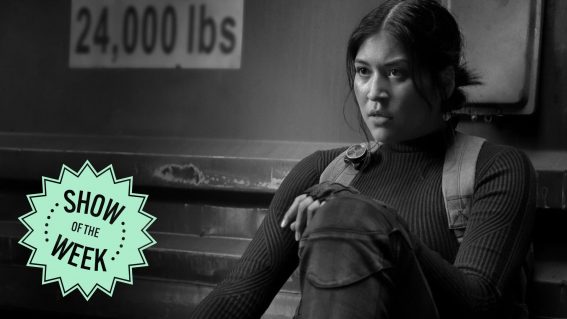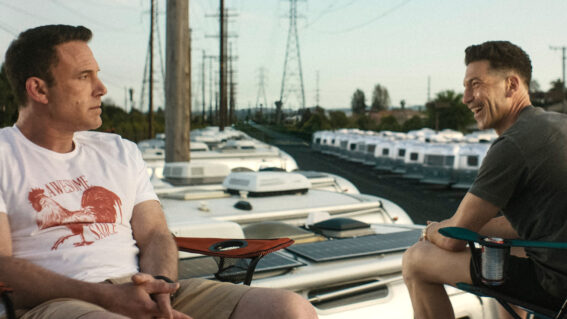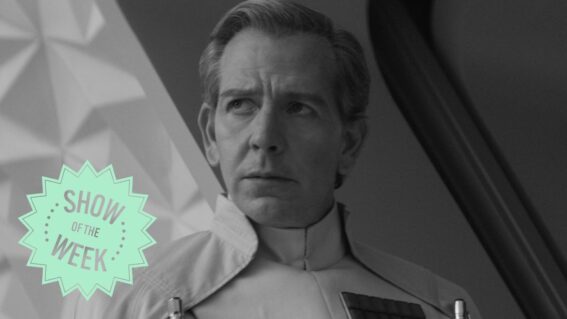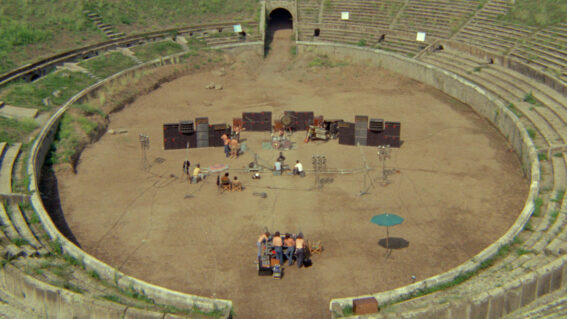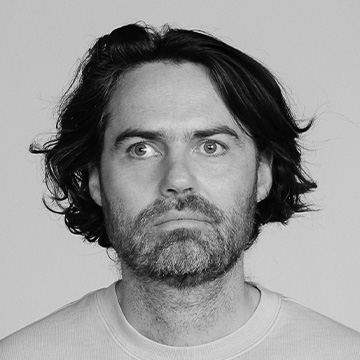The Bear moves from survival from actual living in magnificent season two

We’re all drowning in content—so it’s time to highlight the best. In her column, published every Friday, critic Clarisse Loughrey recommends a new show to watch. This week: The (slightly late) return of magnificent drama The Bear.
I think of chefs the same way I do lion tamers and deep-sea divers. I have some vague grasp of the allure, but I can’t quite figure out how they’re able to pump that much adrenaline into their body on a daily basis without self-combusting. Restaurant kitchens are, to me, one of Dante’s circles of hell.
It’s one of the reasons I’ve been so drawn to The Bear—and that’s putting aside its magnificent writing, the way its absurdity seems to nod towards sitcom comforts without sacrificing its believability, or the way Ayo Edebiri sparks up like a firework every time she’s on screen. The series, created by Christopher Storer, marks one of the first times I’ve truly understood why people live so close to the edge of sanity in order to pursue such a stress-addled, increasingly unstable line of work.
In season two, Carmy (Jeremy Allen White), a prodigious young chef attempting to turn his late brother’s Chicago sandwich shop into a Michelin-star restaurant, reconnects with his school days crush Claire (Molly Gordon). She’s sweet, unfussy, and confident in her work as an ER doctor. That might actually make her perfect for him. At a house party, he overhears her remark: “No one’s ever made dinner for me.” Maybe Carmy is perfect for her, too.
What separates fine dining from almost any other art is the intimacy created between the artist and their audience. Each dish is specially created for one person. The diner has asked to be nourished, and the chef provides—they chop, they grill, they delicately arrange. It’s simple but staggeringly precise. While season one saw its characters operating in red-blooded survival mode, Carmy’s discovery of his brother’s secret money stash has allowed him to move forward to the next step: from survival to actual living.
It’s also allowed the series to slow down and to contemplate, as its characters each pause to consider why they’re bothering to do any of this in the first place. Edebiri’s Sydney traverses the Chicago restaurant scene, an industry that’s been in a particularly precarious state since the beginning of the pandemic, and sees the fragile magic that’s preserved within. Pastry chef Marcus (Lionel Boyce) travels to Denmark to train under Carmy’s old colleague Luca (Will Poulter), embracing dexterity and invention. Tina (Liza Colón-Zayas) and Ebraheim (Edwin Lee Gibson) are sent on a culinary course—the show has a lovely way of celebrating the kind of raw talent that so often goes unseen due to a lack of access and opportunity.
Richie (Ebon Moss-Bachrach), who undergoes the season’s grandest transformation, is, at first, a man without purpose. His bullishness can longer be channelled into the kitchen’s daily toils. So Carmy sends him on a week-long educational venture amongst the front-of-house staff at “the greatest restaurant in the world”. At first, the place seems bafflingly cultish. There’s an explosive, furious search to find the culprit who left a “smudge” on one the place’s intricate, culinary presentations.
But Richie ends up—not so much indoctrinated, but appreciative of why everyone here seems so maniacally detail-orientated. He finds the head chef (Olivia Colman, her charm gently warming the room) quietly peeling mushrooms. Mushrooms don’t need to be peeled. It doesn’t add all that much to the dish. But, as she explains: “It’s just a nice little fun detail so that when the diners see it, they know that someone spent a lot of time on their dish.”
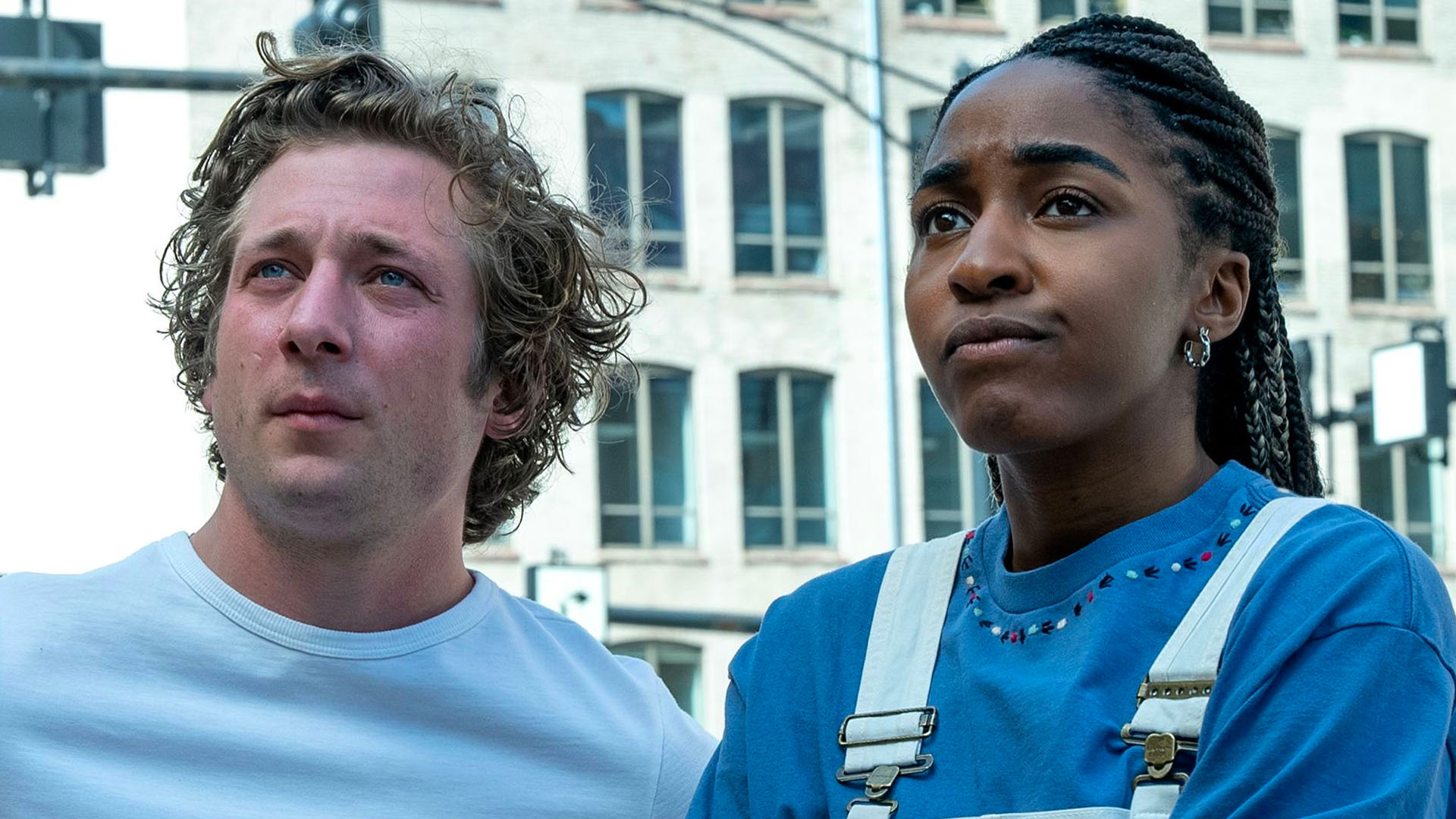
In short, cooking is an act of love. A few more famous faces turn up in the season’s stand-out episode, “Fishes”—a self-contained flashback that’s really like opening up the door to Carmy’s brain and crawling inside. We meet his family, which really means we meet his traumas. And we find his mother (Jamie Lee Curtis) howling in the kitchen: “I make things beautiful for them and no one makes things beautiful for me.” It’s an angrier, more desperate, more broken version of Claire’s observation that no one’s ever made dinner for her.
That is why Carmy, Sydney, Marcus, et al do what they do. The restaurant space is a place to be nurtured, no matter how alone, unappreciated, or unloved you may feel. For a moment, someone cares. And to do that for other people—clearly, that’s worth having to scream “Yes, chef!” at the top of your lungs a hundred times a day.



